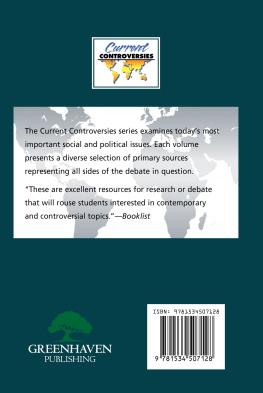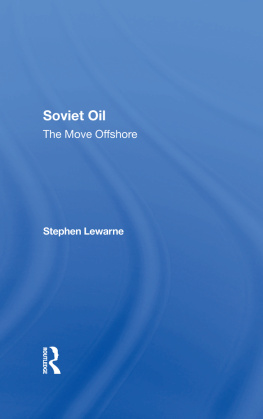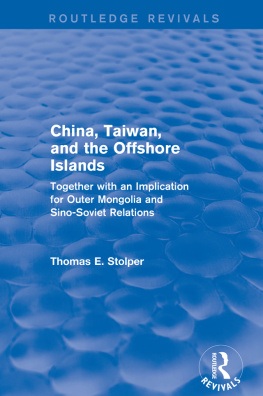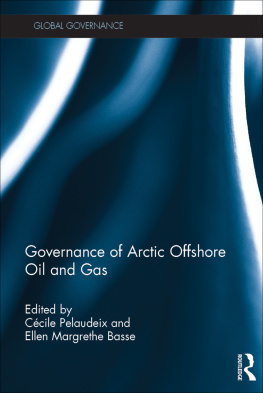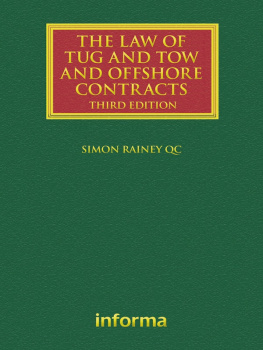Oxford University Press is a department of the University of Oxford.
It furthers the Universitys objective of excellence in research, scholarship, and education by publishing worldwide. Oxford is a registered trade mark of Oxford University Press in the UK and in certain other countries
Rose-Marie Belle Antoine, 2013
The moral rights of the author have been asserted
First Edition published in 2005
Second Edition published in 2013
Impression: 1
All rights reserved. No part of this publication may be reproduced, stored in a retrieval system, or transmitted, in any form or by any means, without the prior permission in writing of Oxford University Press, or as expressly permitted by law, by licence or under terms agreed with the appropriate reprographics rights organization. Enquiries concerning reproduction outside the scope of the above should be sent to the Rights Department, Oxford University Press, at the address above
You must not circulate this work in any other form
and you must impose this same condition on any acquirer
Crown copyright material is reproduced under Class Licence
Number C01P0000148 with the permission of OPSI
and the Queens Printer for Scotland
British Library Cataloguing in Publication Data
Data available
ISBN 9780199693450
Printed in Great Britain by
CPI Group (UK) Ltd, Croydon, CR0 4YY
Links to third party websites are provided by Oxford in good faith and
for information only. Oxford disclaims any responsibility for the materials
contained in any third party website referenced in this work.
FOREWORD TO SECOND EDITION
A foreword should be short and sweet, especially this one in view of Sir Roy Goodes excellent foreword to the first edition (which remains very relevant) and of Professor Belle Antoines detailed Preface.
This second edition, appearing over eight years since the first edition, is much needed in dealing with further statutory trust developments, whether offshore or onshore in the USA and the Middle East, and with OECD nations responses which are designed to counter money laundering, tax evasion and terrorist funding that they consider may be particularly assisted by offshore trust laws. There have also been case law developments in the evolving legal framework of concepts underlying what the professor terms hybrid trusts.
The professor has thus been able to further develop her extensive coverage of trusts and related tax issues with a thorough analysis of the intricate issues of domestic and private international law, and of public policy, which underlie tax minimization attempts and attempts by divorcing spouses, heirs, or creditors to undermine offshore trusts or, directly or indirectly, to enforce foreign judgments. The breadth of the coverage of the statute and case law is most impressive and makes for a stimulating read, especially where the professor leads us through some controversial areas. For practitioners, there is plenty of comparative pragmatic material to guide them, whether contemplating which trust law to choose to govern a trust or whether they may have some chance of success in attacking a trust in the light of its governing law not containing provisions inserted into another states more recent legislation.
I warmly welcome this new edition. It successfully builds upon the professors significant first foray into this fascinating offshore trust world which has produced useful case law for traditional onshore trust jurisdictions and even led them to enact modernizing legislation. It provides thought-provoking material for legal scholars while providing clear analyses for guiding practitioners interested in hybrid trust jurisdictions. It should be widely read by both legal practitioners and legal scholars.
David Hayton
Caribbean Court of Justice
Trinidad, January 2013
FOREWORD TO FIRST EDITION
Oliver Wendell Holmes, the father of the great judge of the same name, once wrote: Put not your trust in money, but put your money in trust. We can imagine the enthusiasm with which he would have greeted that modern phenomenon, the offshore trust, which is the subject of this excellent new book.
Professor Ross Cranston and I had the pleasure of co-supervising Rose-Marie Antoines doctoral thesis on offshore financial law, a thesis highly commended by the examiners, part of which later grew into a larger specialist work published under the title Confidentiality in Offshore Financial Law , by Oxford University Press. In that work Dr Antoine graphically depicted the tension between the desire of offshore jurisdictions to respond to the needs of international business and finance, through strict confidentiality rules, tax advantages, and the like, and the concern of onshore jurisdictions to counter tax evasion and money laundering, and drew attention to the important constitutional issues involved. Confidentiality in Offshore Financial Law , a splendid work, is now followed by this second offering from Dr Antoines pen, an equally fine text which explores the distinctive characteristics of the offshore trust, an institution combining the traditional trust developed by the English common law with new features designed to protect the trust assets from the claims of creditors, bypass inconvenient rules on succession and counter challenges by onshore jurisdictions.
In this new book Dr Antoine combines a rigorous analysis of the complex legal issues surrounding the offshore trust with a balanced policy perspective in which she stoutly defends the institution of the offshore trust as a legitimate instrument of estate planning based on freedom of contract and of property while acknowledging that it may be abused and that onshore jurisdictions have legitimate concerns which need to be addressed. The book is wide-ranging, covering matters as diverse as the liability of trustees and the validity of exculpatory clauses, tax implications, the use of human rights law to protect the essential features of the offshore trust, and issues of the conflict of laws, including an examination of the Hague Convention on the Recognition of Trusts. It is at once a challenging work for the scholar and a vade mecum for the practitioner, and I have no doubt that it will be welcomed as warmly as its predecessor.


